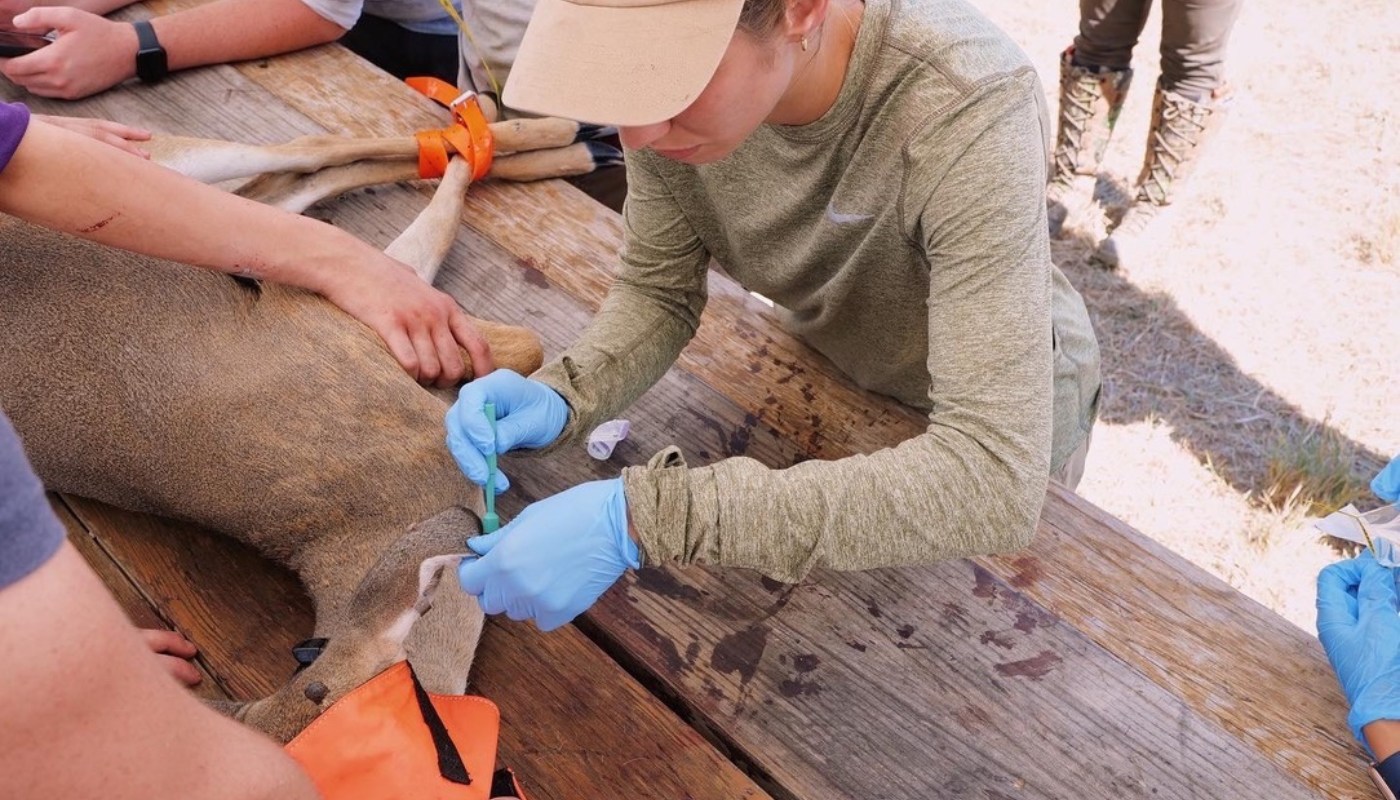Minor in Renewable Natural Resources
Overview
The School offers a graduate minor in Renewable Natural Resources. The goal of this minor is to allow students to gain knowledge in a specific area of natural resources ecology, a better understanding of the various factors that impact renewable natural resource production, and the principles, strategies, and techniques that have been developed to conserve and manage these resources.
Degree Recognition:
Degree Transcripts: Line denoting completion of minor degree requirements if requested by student.
Minor Advisor:
Each student must find a SRNR Graduate Faculty member willing to serve as the minor professor on the student’s graduate committee.
Curriculum:
Together with the minor professor, the student will develop a four-course, 12 semester hour (minimum) curriculum based on student interests and background. Within this 12-hour requirement, 9 hours must be formal (excluding RNR 7029 – Advanced Topics in Renewable Natural Resources, and RNR 8900 – Research Problems in Natural Resources) courses offered by the School of Renewable Natural Resources, 6 of which must be at the 7000 level or above
For More Information:
Dr. William E. Kelso
F. O. Bateman Professor of Renewable Natural Resources
Associate Director and Graduate Coordinator
118 Renewable Natural Resources Bldg
Louisiana State University
Baton Rouge, LA 70803
phone: 225-578-4176
email: wkelso@lsu.edu
Graduate Minor in Interdepartmental Studies in Wetland Ecology and Restoration (GWER)
Overview:
This minor is intended for graduate students in any department whose thesis or dissertation research addresses some aspect of wetland ecology or restoration. The goal of this minor is to instill in students a strong understanding of concepts in wetland ecology and restoration as well as to demonstrate the multidisciplinary nature of wetland ecology and restoration. This minor is intended for graduate students in any department whose thesis or dissertation research addresses some aspect of wetland ecology or restoration. An interdepartmental wetland approach encourages graduate students to complete wetland courses within their department as well as wetland courses from other departments. Such mixing benefits students and faculty. More information is available below.
Curriculum:
The curriculum for the minor in Interdepartmental Studies in Wetland Ecology and Restoration is the same for Master and Ph.D. students. All students must take at least 12 hours of Approved Wetland Courses with at least four hours from different groups. At least three of the 12 hours must be a 7000 or 8000 level course; none of the hours can be taken on a pass/fail basis. Students must earn a minimum grade of B in all minor courses.
| Courses | Credit Hours |
Course Title |
| Group A: Department of Biological and Agricultural Engineering | ||
| BE 4383 | 3 | Natural Resource Engineering |
| BE 7304 | 3 | Advanced Natural Resources Engineering |
| Group B: Department of Biological Sciences | ||
| BIOL4020 | 4 | Taxonomy and Ecology of Wetland Plants |
| BIOL 4308 | 3 | Plants in Coastal Environments |
| Group C: Department of Geology and Geophysics | ||
| GEOL 4081 | 3 | Chemical Oceanography |
| GEOL 4164 | 3 | Deltaic Geology |
| GEOL 7032 | 3 | Fluvial Processes and Systems |
| GEOL 7132 | 3 | Dynamics of Sedimentation |
| Group D: School of Plant Environmental and Soil Sciences | ||
| AGRO 4078 | 3 | Land Use Planning and Land Management |
| AGRO 7165 | 3 | Biogeochemistry of Wetland Soils and Sediments |
| Group E: School of Renewable Natural Resources | ||
| RNR 4020 | 4 | Taxonomy and Ecology of Wetland Plants |
| RNR 4013 | 4 | Ecology and Management of Wetland Wildlife |
| RNR 4033 | 4 | Silviculture and Management of Hardwoods |
| RNR 7012 | 3 | Ecology and Management of Waterfowl |
| RNR 7017 | 4 | Restoration and Management of Wetland Function |
| RNR 7018 | 4 | Habitat Management Principles |
| RNR 7151 | 4 | Watershed Hydrology and Floodplain Analyses |
For More Information:
Dr. Andy Nyman
Coordinator of Interdepartmental Studies in Wetland Ecology and Restoration
327 Renewable Natural Resources Bldg
Louisiana State University
Baton Rouge, LA 70803
phone: 225-578-4220
email: jnyman@lsu.edu
